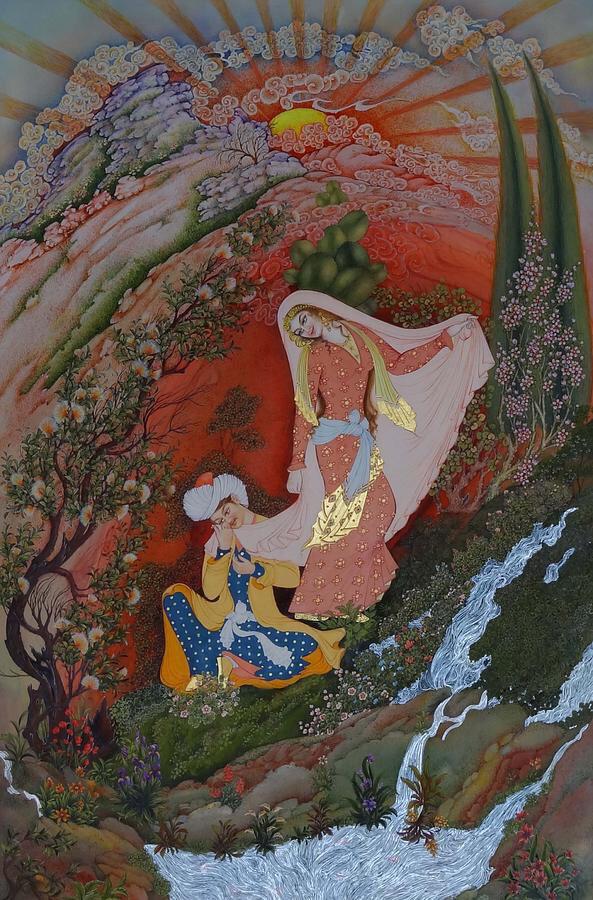Ancient Persian temples had no icons and no statues inside or outside their walls. They hosted fire altars. Altars with fire. Altars of fire. Fire symbolises the sacred (xodā).
We are all fire. We are all incandescent. We are all a degree of intensity within a cosmic blazing dance. A burning flame.
Unlike in the West, to be oneself (xōd) doesn’t mean to enclose yourself in an identity (how could fire be an enclosure?) but to feel and be your own intensive difference, the affirmative difference you are, the flame you are. For everything has a specific way of being fire, everything is a particular type of flame.
But at the same time, a flame always wants to join another flame. Because a flame wants to burn, and to burn even more intensely. A flame always wants to fuse into a greater fire, into a bigger one. For a single flame tends to get extinct, while two increase the burning.
Love is the path for this fusion, since it gives us a chance to burn more intensely. And it is in this context a question of two. For if a flame were to fuse with the cosmic fire itself, it would rather get lost in its vastness. And if it were to constantly jump from one flame to another, it would either risk decreasing its potency by not achieving complete fusion or being blown out through its movements.
The 12-century Persian mystic Ahmad Ghazzali writes that love (‘eshq) has three stages, each of which is represented by the concepts linked to one of the three letters of the word “love” (‘, sh, q): first you find your beloved, and you see her/him with your eye (‘ayn); then you drink her/his wine (sharāb) saturated with longing (shawq); lastly, you die to yourself and are born through her/him, with your heart (qalb) thus gaining a subsistence (qīyām) it would otherwise lack.
Ghazzali also says that a lover’s breath that goes out from and comes into her/his chest is like the beloved’s steed, since the beloved has her/his home in the lover’s chest.
Love, then, as a blazing dance.

Image: Modern Persian miniature with two lovers, by Persian Art
